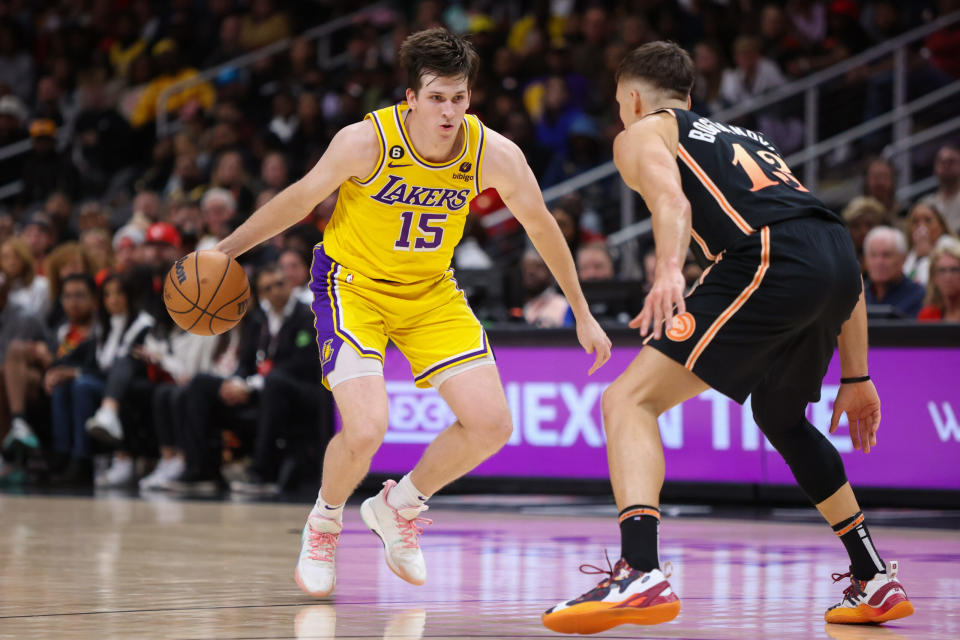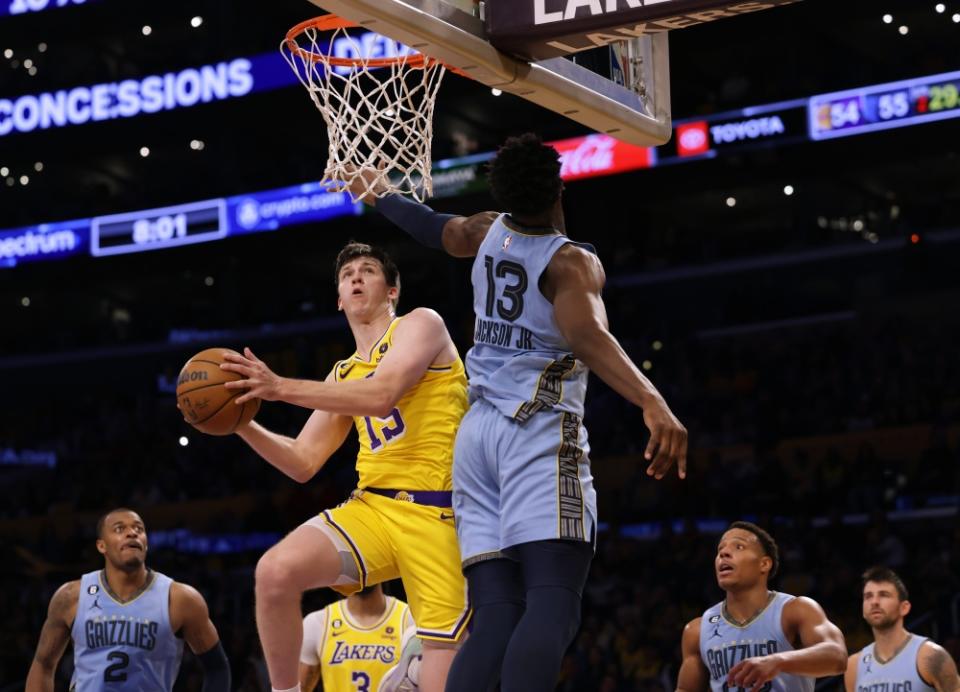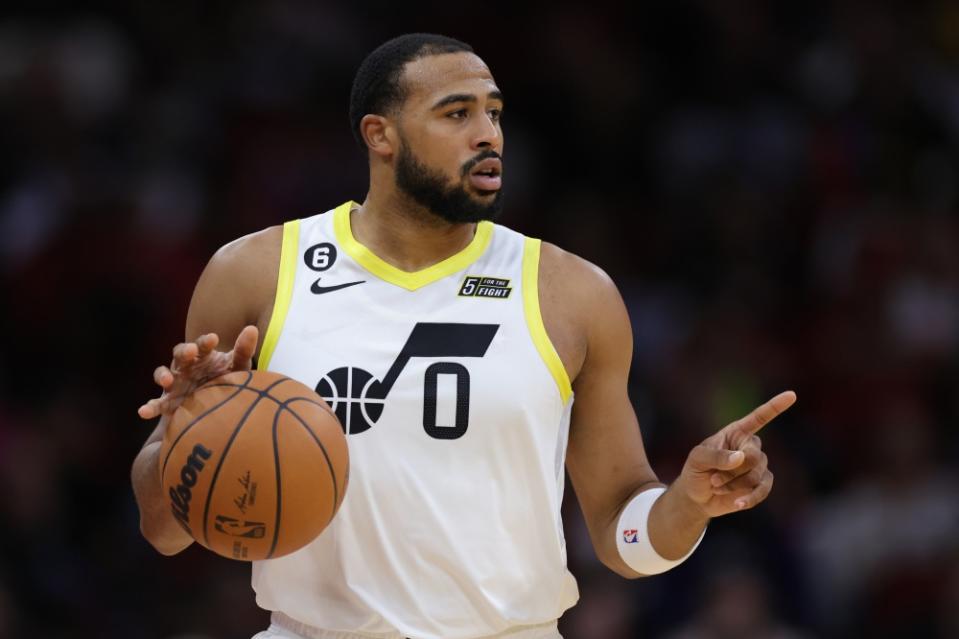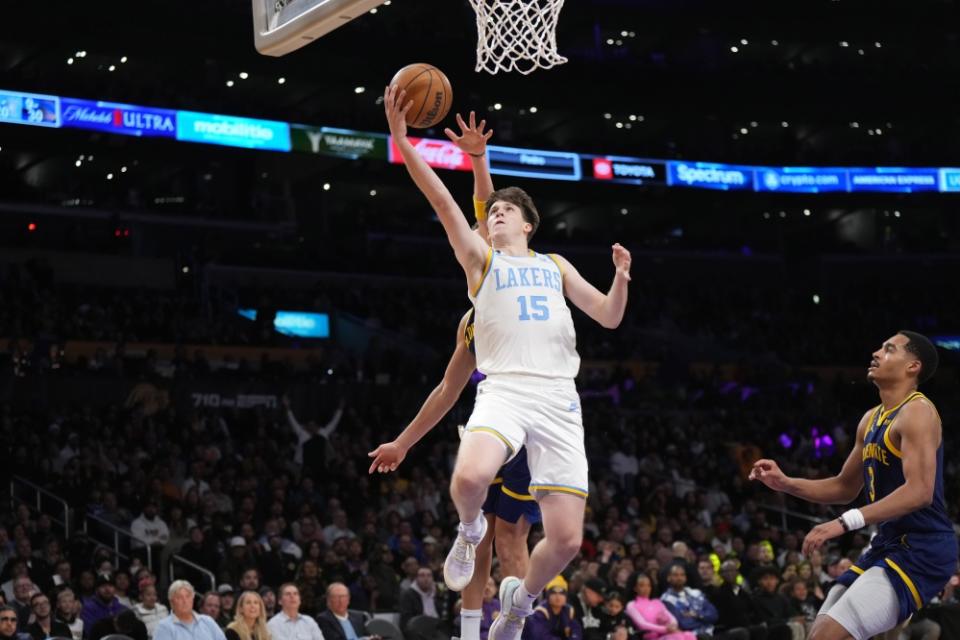Austin Reaves free agency: His stock and potential destinations

With the regular season nearly complete, we have seen enough from each player to evaluate them and their upcoming free-agency situation. We decided to look at some of the best upcoming free agents and check their stock, see what their next contract could look like, and weigh their odds of re-signing with their current team.
Below we evaluate one of the most exciting upcoming free agents, Austin Reaves.
Free agent stock

(Photo by Harry How/Getty Images)
So far in his career, Reaves has been a good all-around, jack-of-all-trades type of player. He isn’t particularly elite in any area. but he will almost always be effective. He’s malleable with an ability to play whatever role the Lakers need him to play on a given night. This player type is hard to come by these days, and that combined with his recent play has elevated his free-agent stock significantly.
His recent stretch of games where he dominated the ball might not be representative of his normal role going forward. The second-year guard is coming off a career night against Orlando where he scored 35 points off the bench on 9-of-14 shooting in just 30 minutes. While he isn’t known for his scoring, he has shown an ability to get buckets at a high level when needed.
During LeBron’s absence, Reaves has stepped up with a willingness to take extra shots and is making a good amount of difficult ones off the dribble. His ability to get to the line has contributed heavily to this run of high-scoring games.
Reaves’ floor vision and playmaking are underrated parts of his game. He can run the floor and find open looks for his teammates very effectively. He only averages three assists per game but has had six games with at least five assists in the last month. He’s also pretty good at completing difficult stylish passes.
Chances of re-signing

(Photo by Carmen Mandato/Getty Images)
It feels like a strong possibility that the Lakers will re-sign Reaves this summer largely thanks to his restricted free agent status. He will have Early Bird rights, allowing the Lakers to re-sign him for up to four years, projected at $51 million. He may have played himself into that amount and nearly $13 million per year should be a great value in a rising cap environment.
While this is a great development for Reaves, it’s also another reminder of the same mistake the Lakers keep making. They originally signed Reaves to a two-way deal in the 2021 offseason before converting him onto the regular season roster on a two-year rookie minimum contract.
After signing Kendrick Nunn with $5 million of their taxpayer mid-level exception, they had $890,000 leftover. They could’ve waited a couple of weeks for the rookie minimum salary amount to prorate to that leftover amount, allowing them to sign Reaves with the remainder for at least three years.
The Lakers had a similar experience with Talen Horton Tucker by not reserving him a portion of their mid-level exception in 2019. They ended up having to pay him a year earlier and his raise was a factor in their decision to not re-sign Alex Caruso. It’s common practice for teams to sign second-rounders and undrafted players to multi-year deals to keep them under team control for as long as possible. Hopefully for the Lakers, paying Reaves a year earlier doesn’t result in luxury tax casualties elsewhere on the roster this offseason.
Other candidates outside of his current team

Kirby Lee-USA TODAY Sports
Reaves’ ability to fit anywhere should make just about every team with cap space this summer interested in him. Those teams include Houston, Orlando, Oklahoma City, Charlotte, San Antonio, and Utah. While they have the means to make him a significant offer, there are several barriers that could prevent them from successfully acquiring him.
His restricted free agency status is already a strong enough boundary to keep Reaves in Los Angeles. In recent years, teams have been less incentivized than ever to sign restricted free agents to offer sheets. Part of it could be how an offer sheet could keep the offering team’s books frozen for up to three days, meaning they could miss out on free agent opportunities. And with information flowing quicker than ever, teams should have enough intel ahead of time to know if their offer sheet will get matched.
But the other complicating factor that could ultimately keep Reaves a Laker is the Gilbert Arenas provision. Other teams with cap space could sign Reaves to a deal beyond the four-year, $50 million contract the Lakers are limited to offering him. The Arenas provision was implemented to give teams like the Lakers a chance to match offer sheets they normally cannot sign their Early Bird restricted free agents to.
Theoretically, another team can offer Reaves a maximum of four years projected at $98.7 million. This structure would have him earning the non-taxpayer mid-level exception amount for the first two seasons, followed by a maximum salary amount in the final two. The last time we saw a player get an Arenas provision offer sheet was Tyler Johnson by Brooklyn in 2016, which Miami matched.
There could be teams willing to offer Reaves a significant offer sheet if they feel that he will meet the value of the salary spike that comes in the backend of the deal. The question then becomes what number is the sweet spot where the salaries in the last two years make sense for the offering team, while also getting the Lakers hesitant to match. But given how uncommon this offer sheet is, history suggests it’s unlikely we see one given out this summer.

